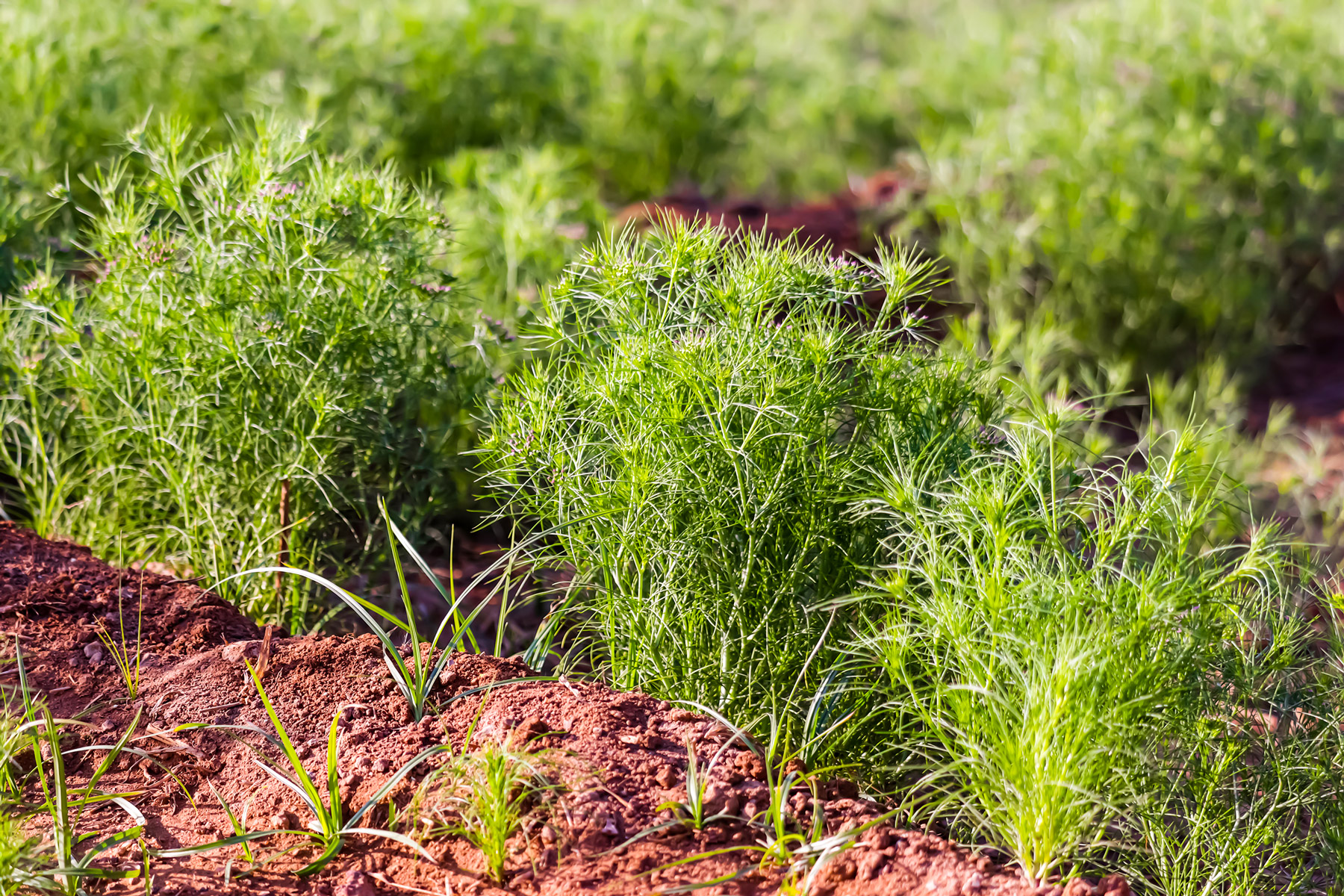The right spice or herb can create flavor versatility and breathe new life into your favorite savory dishes.
Historically, many cultures worldwide used culinary herbs and spices to make foods easier to digest. One such powerful yet often underused spice is cumin.
Cumin (Cuminum cyminum) is a medicinal plant containing more than 100 chemicals, including essential fatty acids and volatile oils. In Ayurvedic medicine, the ancient traditional system of Indian medicine, cumin is believed to possess healing properties.
While cumin is a staple in Indian cuisine, its influence extends far beyond. In the United States, it gained popularity through Latin American foods, and it is now commonly used in Mexican cuisine.
Why Cumin?
Exploring traditional herbal remedies has led to research that paved the way for the development of alternative drugs, but often with fewer side effects than pharmaceuticals.
Cumin’s use dates back to ancient times; it was mentioned in the writings of the Greek physician Hippocrates in the fifth century B.C. For thousands of years, it has been used not just for flavor but also to aid digestion. In Sanskrit, an ancient Indian language, cumin is called “jeera,” meaning “that which helps digestion.”
Historically, cumin seeds have been used to treat various digestive issues, including flatulence, diarrhea, indigestion, bloating, and gas. Modern medicine recognizes cumin’s carminative action, which soothes digestive irritation and promotes blood flow to digestive organs.
Research over the years has demonstrated cumin’s many health benefits, including the following:
- Improves digestion: A July clinical study of 74 patients undergoing abdominal surgery showed that using a 250-milligram cumin extract helped reduce gas-passing time and improve bowel motility after abdominal surgery.
- Reduces blood fats: Research has also shown that cumin reduces blood fats. In a small study of 88 overweight and obese women, adding three grams of cumin powder to two meals daily for three months led to improvements in blood lipids compared with the control group.
- Enhances enzyme production: Other studies suggest that cumin’s benefits come from its ability to stimulate the secretion of pancreatic enzymes, which are necessary for proper digestion and assimilation of nutrients from food.
- Provides diarrhea relief: Cumin oil acts as a stomachic and astringent, making it useful against diarrhea and dyspepsia, as well as symptoms that involve the digestive tract, such as abdominal pain, bloating, and heartburn.
The spice’s pleasant aroma comes from its main constituent, cuminol (cuminaldehyde), found in its volatile oils. Cuminaldehyde can be converted into thymol, which stimulates salivary glands to release enzymes that break down carbohydrates for easier digestion.
Cumin also contains phytochemicals such as flavonoids and antioxidants, contributing to its overall health benefits.
How Other Spices Compare
While cumin stands out for its digestive properties, other popular spices such as ginger, cinnamon, and fennel offer similar benefits. Their stimulating actions on the digestive tract are similar to those of cumin and can be combined for various dishes.
Traditional cooking methods often used spices to enhance the flavors of dishes while making foods such as legumes and root vegetables easier to digest. Adding spice while cooking can reduce bloating and gas, minimizing discomfort associated with certain foods, especially beans. Cumin, in particular, is a flavor that even picky eaters will enjoy, especially when it’s combined with other ingredients.
Incorporating Cumin Into Your Diet
It’s worth being realistic about what results you can expect from using culinary medicinal herbs and spices. In my book, “DNA Powered Health,” I wrote about the three stages of health care to match the level of treatment you desire:
- Symptomatic (temporary relief)
- Corrective care (addressing underlying causes)
- Wellness care (prevention or maintenance to stay well)
Using cumin seeds or powder in your cooking would fall into the wellness category. Beyond cooking, a clinician-prescribed supplement will be better absorbed than most tablets.
Cumin can be added to various dishes, including:
- Vegetable dishes
- Soups
- Bean dishes
- Sauerkraut
- Meat marinades
- Savory sauces
Start by adding 1 teaspoon or less to your existing dishes to acclimate to the flavor.
Jeera Water
If you’re not feeling adventurous enough to cook with cumin yet, you can still experiment with it to reap its health benefits by mixing it with water. This is called jeera water, and it is safe for most people to consume daily.
People with weak digestive systems should drink cumin water early in the morning on an empty stomach for better digestion and to decrease flatulence.
Cumin can relieve stomachaches and symptoms associated with irritable bowel syndrome thanks to its essential oils, magnesium, and sodium.
To make jeera water, Indian recipes suggest the following:
- Heat 1 cup of filtered water.
- Add 1/2 teaspoon of cumin seeds.
- Soak it overnight.
- Strain the seeds before drinking.
- Drink at room temperature or warm.
Can You Take Cumin in Pill Form?
While cumin is available in supplement form, it’s generally best to incorporate it into your diet through cooking. Food-based approaches typically carry less risk of adverse effects and may offer better absorption.
Remember that quality and form can significantly affect absorption when considering herbal supplements. The absorption scale from easiest to hardest in terms of forms is as follows:
- Liquid (including liposomal)
- Powder (including capsules and chewable forms)
- Tablet
Storage Tips
To maintain cumin’s efficacy and flavor:
- Store in a tightly sealed container
- Keep in a cool, dark, dry place
- Avoid direct sunlight, dampness, or excessive heat
Properly stored cumin should keep for six to 12 months.
Recipe: Creamy Pumpkin Soup
Here’s a simple, digestion-soothing recipe incorporating cumin.
Ingredients:
- 5 cups bone broth (or 5 teaspoons broth concentrate equivalent)
- 2 cups cooked red onion
- 700 grams diced pumpkin
- 250 milliliters coconut milk
- 2 chopped celery stalks
- 1 teaspoon curry powder
- 1 teaspoon ground cumin
- 1/2 teaspoon minced fresh ginger
- 1/2 teaspoon pink salt
Instructions:
- Heat oil in a cast-iron skillet and pan-fry onions, pumpkin, celery, and garlic.
- Sauté for 7 minutes until onions soften.
- Add turmeric, curry powder, cumin, and salt. Mix for 1 minute more.
- Transfer to a saucepan or pressure cooker and add broth and coconut milk. Stir well.
- Close the pot, lock the lid, and cook on high pressure for 5 minutes.
- Use a stick blender to blend the soup to the desired consistency.
- Serve with an extra dollop of coconut milk or cream.
Enjoy this flavorful and digestion-friendly soup as part of your cumin-enriched diet.














